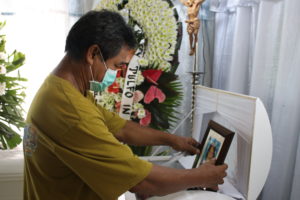MANILA, Philippines — The Philippine National Police remains committed to using body cameras during operations to show its men’s efforts in the fight against criminality.
Police Brig. Gen. Ildebrandi Usana, spokesperson for the PNP, said at an online briefing on Tuesday that the procurement of body cameras was underway. But he added that once the transaction was completed, the equipment would be distributed to police agents.
Usana noted that some policemen already had body cameras like Special Action Force troopers.
“I guess these will eventually be a matter of course when it comes to the operational functions of the police … There are also encounters involving police officers that cause death among our ranks and we hope that with the body cameras, we can see the efforts of the police when it comes to fighting criminal elements,” he said.
Usana said the PNP aims to strengthen its operations and accomplishments through the use of body cameras.
“In case there are lapses, [these would also] be used as basis to determine what really happened in police operations,” he added.
In October, the then PNP chief, Gen. Camilo Cascolan, said the PNP was expecting the delivery of 2,600 body cameras for testing, with antidrug operatives to be given priority.
Calls for law enforcers to use body cameras have been mounting amid incidents of police abuse and brutality.
Gen. Debold Sinas, the current PNP chief, however, cautioned the public from taking videos of crime incidents, saying the perpetrators might retaliate against them.
But presidential spokesperson Harry Roque said otherwise.
“To me, it is better that we [have] that kind of video because it is so easy to prove the responsibility of the policeman,” Roque said.
Roque said the technology was there to expedite the prosecution of law violators.
“This is why there are some who say that the police should have body cameras so that we could see what was happening before the use of force by the police,” he said. INQ


